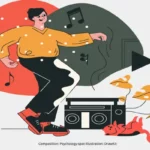
In the middle of the 17th century France was still embroiled in the Thirty Years’ War. To cover it, the monarchy increased the tax pressure on the nobles and the people. People hoped that the arrival of Anne of Austria’s regency would let them breathe, but that was not the case. Even Parisians, who until then had been exempt, were forced to pay new taxes.
Thus was born La Fronda, a series of revolts and insurrections that stood up to the growing authority of the monarchy, general discontent and the economic crisis in which the country was mired. The name fronde referred to the slingshots carried by the rebels of the first uprising in Paris. And when living conditions become unbearable, anything becomes a means of defense.
Cardinal de Retz joined the popular uprising, although for reasons much more worldly than lofty, and said: “When those who rule lose shame, those who obey lose respect.” The echo of his words still resonates in contemporary society: when rulers lose contact with reality, those who suffer the most lose respect. And from there to barbarism there could be only one step.
The decline of convictions erodes respect
We live in extremely turbulent global times. And we attend political spectacles that are more typical of a children’s playground than of civilized adults. There are lies and cover-ups. Shouts instead of solutions. Crossfire of accusations. Corruption and abuse of power. Inconsistencies, lack of ethics and absence of morals…
However, authority, in its ideal form, is a mechanism designed to guarantee the organization and functioning of society. Like an old clock that marks time in the universe of human relationships, authority reflects a dialectical dynamic between those who dictate the laws and those who obey them.
When authority is exercised with integrity and responsibility, it serves to strengthen the bond of mutual respect between both parties. On the other hand, its excessive, corrupt or totally disconnected exercise from reality ends up undermining the trust that society itself has placed in the organizations and people who exercise it.
When certainties fade like fleeting shadows in the night and give way to disagreement and boredom, the pillars of authority falter under the onslaught of doubt and instability. Then anything can happen, even the unthinkable.
In those cases, “Unspoken assumptions are suddenly challenged. The usual sequences of ’cause and effect’ are broken. What we call ‘normality’ during weekdays or ‘civilization’ during festive occasions proves to be, literally, fragile as paper,” as Zygmunt Bauman wrote.
Reasonable disobedience and the theory of the social contract
Authority is not something that can be taken for granted. As Antoine de Saint-Exupéry wrote: “Authority rests, above all, on reason. If you order your people to jump into the sea, they will make a revolution.” Only those who issue reasonable orders have the right to demand certain obedience.
True authority is not an arbitrary imposition of wills, but a natural emanation of common sense and logic. The legitimacy of the norms is given by the consent – implicit or explicit – of a majority. When that balance is broken or the needs of that majority are neglected, we are placed on the edge of the precipice of reasonable disobedience.
According to the theory of the social contract defended by philosophers such as Thomas Hobbes, John Locke and Jean-Jacques Rousseau, obedience to authority rests on an implicit contract between individuals and the State. We give up certain freedoms in exchange for order and social well-being. We decided to abide by the rules for the good of coexistence, which, ultimately, is also our own good.
However, that contract is not immutable, so we can decide to change its terms and conditions if the other party does not act reasonably and put the needs of a few before the common good. And it is precisely the most independent, peaceful people, sensitive to others and with thinking outside the norm who tend to condemn the abuse of power and confront the unjust exercise of authority, according to a study carried out by Philip Zimbardo.
History teaches us that, in the long run, true power lies in the masses, in that group that cannot afford to lose contact with reality. In those people who have given their vote of confidence for the common good but who can also withdraw it when that common good is eroded to the point of becoming widespread unrest.
There is little more to add.
References:
Zimbardo, P. & Bocchiaro, P. (2017) On the dynamics of disobedience: experimental investigations of defying unjust authority. Psychol Res Behav Manag; 10: 219–229.
Giorgini, G. & Irrera, E. (2017) The Roots of Respect. Boston: De Gruyter.
Bauman, Z. (2007) Miedo líquido. Barcelona: Ediciones Paidós.




Swami says
Absolute blunt truth.